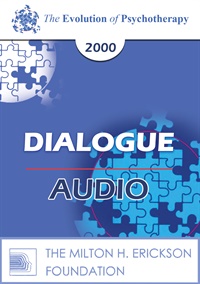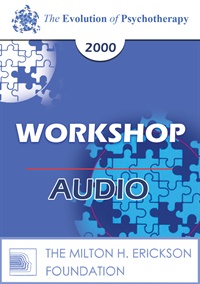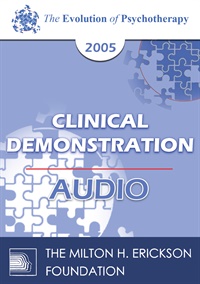Credit available - Click Here for more information
- Average Rating:
- Not yet rated
- Topic Areas:
- Addiction | Keynotes | Continuing Education | Love | Couples Therapy | Neuroscience | Sex and Sexuality
- Categories:
- Couples Conference | Couples Conference 2018 | Online Continuing Education
- Faculty:
- Helen E. Fisher, PhD
- Course Levels:
- Master Degree or Higher in Health-Related Field
- Duration:
- 57:05
- Format:
- Audio and Video
- Original Program Date:
- May 04, 2018
- Short Description:
- Biological anthropologist Helen Fisher discusses three brain systems that evolved for mating and reproduction: the sex drive; feelings of intense romantic love; and feelings of deep attachment to a long term partner. She then focuses on her brain scanning research (using fMRI) on romantic rejection and the trajectory of love addiction following rejection. She concludes with discussion of the brain circuits associated with long-term partnership happiness and the future of relationships in the dig
- Price:
-
Sale is $29.00
price reduced from Base Price - $59.00
Credit available - Click Here for more information
- Average Rating:
- Not yet rated
- Topic Areas:
- Attachment | Neuroscience | Keynotes | Continuing Education | Differentiation | Couples Therapy
- Categories:
- Couples Conference | Couples Conference 2018 | Online Continuing Education
- Faculty:
- Stan Tatkin, PsyD, MFT
- Course Levels:
- Master Degree or Higher in Health-Related Field
- Duration:
- 50:59
- Format:
- Audio and Video
- Original Program Date:
- May 06, 2018
- Short Description:
- The early 1950s brought us John Bowlby's work on infant attachment, mirrored by Harry Harlow's primate attachment studies on rhesus monkeys. The 50s and 60s saw the advent of Murray Bowen's groundbreaking work on differentiation. The 1970s brought us further with Margaret Mahler's work on separation/individuation and the psychological birth of the human infant. Today, clinicians and researchers alike attempt to validate the developmental theories of Bowlby, Bowen, and Mahler thro
- Price:
-
Sale is $29.00
price reduced from Base Price - $59.00
Credit available - Click Here for more information
- Average Rating:
- Not yet rated
- Topic Areas:
- Addiction | Couples Therapy | Workshops | Continuing Education | Love | Neurobiology | Neuroscience
- Categories:
- Couples Conference | Couples Conference 2018 | Online Continuing Education
- Faculty:
- Helen E. Fisher, PhD
- Course Levels:
- Master Degree or Higher in Health-Related Field
- Duration:
- 1:57:48
- Format:
- Audio and Video
- Original Program Date:
- May 04, 2018
- Short Description:
- Biological Anthropologist Helen Fisher discusses four broad basic styles of thinking and behaving associated with four primary brain systems: the dopamine, serotonin, and testosterone and estrogen/oxytocin systems. She discusses why people are predisposed to love one person rather than another (mate choice). She hypothesizes that individuals who primarily express of the constellation of traits linked with each of these brain systems may be predisposed to different forms of love addiction, includ
- Price:
-
Sale is $29.00
price reduced from Base Price - $59.00
Credit available - Click Here for more information
- Average Rating:
- Not yet rated
- Topic Areas:
- Keynotes | Neuroscience | Attachment | Couples Therapy | Relationships
- Bundle(s):
- CC19 Main Conference Video Bundle | CC19 Individual Selections
- Categories:
- Couples Conference | Couples Conference 2019 | Online Continuing Education
- Faculty:
- Stan Tatkin, PsyD, MFT
- Course Levels:
- Master Degree or Higher in Health-Related Field
- Duration:
- 59:40
- Format:
- Audio and Video
- Original Program Date:
- Apr 14, 2019
- Short Description:
- We currently live in a time of great emotional stress around matters of fairness, justice, ethics, and morality. As couple therapists, we are working with the smallest unit of a society, the two-person system that is the primary attachment partnership. Therapists should have a strong understanding of their own moral and ethical compass when guiding partner behavior that occurs inside and outside of therapy.
- Price:
-
Sale is $29.00
price reduced from Base Price - $59.00

- Average Rating:
- Not yet rated
- Topic Areas:
- Psychotherapy | Dialogues | Neuroscience
- Categories:
- Evolution of Psychotherapy | Evolution of Psychotherapy 2000
- Faculty:
- Judd Marmor | Ernest Rossi, PhD
- Duration:
- 59 Minutes
- Format:
- Audio Only
- Original Program Date:
- May 28, 2000
- Short Description:
- EP00 Dialogue 12 - Facilitating Neurogenesis in Psychotherapy - Judd Marmor, M.D., and Ernest Rossi, Ph.D. Given a topic, to become aware of the differing approaches to psychotherapy, and to identify the strengths and weaknesses in each approach.
- Price:
- $15.00 - Base Price

- Average Rating:
- Not yet rated
- Topic Areas:
- Ericksonian Psychotherapy | Psychotherapy | Invited Addresses | Neurobiology | Neuroscience
- Categories:
- Evolution of Psychotherapy | Evolution of Psychotherapy 2000
- Faculty:
- Ernest Rossi, PhD | Thomas Szasz, MD
- Duration:
- 1 Hour 25 Minutes
- Format:
- Audio Only
- Original Program Date:
- May 28, 2000
- Short Description:
- Current research on neurogenesis (growth of new brain cells) indicates that novelty, environmental enrichment and physical exercise can facilitate new growth in the adult human brain. How can we optimize our Ericksonian approaches to support the psychobiological growth process?
- Price:
- $15.00 - Base Price

- Average Rating:
- Not yet rated
- Topic Areas:
- Ericksonian Psychotherapy | Neuroscience | Workshops | Ericksonian Hypnosis and Therapy Techniques | Psychotherapy
- Categories:
- Evolution of Psychotherapy | Evolution of Psychotherapy 2000
- Faculty:
- Ernest Rossi, PhD
- Duration:
- 2 Hours 33 Minutes
- Format:
- Audio Only
- Original Program Date:
- May 25, 2000
- Short Description:
- Neuroscientists have proposed that the next ten years be devoted to exploring cognitive approaches to facilitating neurogenesis in the hippocampus of the adult human brain. Let's do it!
- Price:
- $15.00 - Base Price
- Average Rating:
- Not yet rated
- Topic Areas:
- Clinical Demonstrations | Hypnosis | Psychotherapy | Neuroscience
- Categories:
- Evolution of Psychotherapy | Evolution of Psychotherapy 2005
- Faculty:
- Ernest Rossi, PhD
- Course Levels:
- Master Degree or Higher in Health-Related Field
- Duration:
- 59:56
- Format:
- Audio and Video
- Original Program Date:
- Dec 10, 2005
- Short Description:
- Educational Objectives: To describe a novel, simple and easy-to-learn ideodynamic approach to hypnosis and psychotherapy. To describe how experiences of surprise and novelty generate observable minimal behavioral cues, psychobiological arousal, gene expression and brain plasticity.
- Price:
-
Sale is $29.00
price reduced from Base Price - $59.00

- Average Rating:
- Not yet rated
- Topic Areas:
- Clinical Demonstrations | Neurobiology | Psychotherapy | Neuroscience
- Categories:
- Evolution of Psychotherapy | Evolution of Psychotherapy 2005
- Faculty:
- Daniel Siegel, MD
- Duration:
- 1 Hour 1 Minutes
- Format:
- Audio Only
- Original Program Date:
- Dec 10, 2005
- Short Description:
- Educational Objectives: To name four basic principles of interpersonal neurobiology in relation to the process of psychotherapy. To describe the ways in which the therapeutic relationship shapes brain function in the present, helps loosen old neural maps, and "snags" the brain in order to promote neural activation and growth in very targeted ways.
- Price:
- $15.00 - Base Price
- Average Rating:
- Not yet rated
- Topic Areas:
- Dialogues | Neurobiology | Neuroscience | Psychotherapy
- Categories:
- Evolution of Psychotherapy | Evolution of Psychotherapy 2005
- Faculty:
- Ernest Rossi, PhD | Daniel Siegel, MD
- Course Levels:
- Master Degree or Higher in Health-Related Field
- Duration:
- 59:36
- Format:
- Audio and Video
- Original Program Date:
- Dec 10, 2005
- Short Description:
- Dialogue 10 from the Evolution of Psychotherapy 2005 - The Psychobiology of Change Featuring Ernest Rossi, PHD, and Daniel Siegel, MD
- Price:
-
Sale is $29.00
price reduced from Base Price - $59.00
Please wait ...







